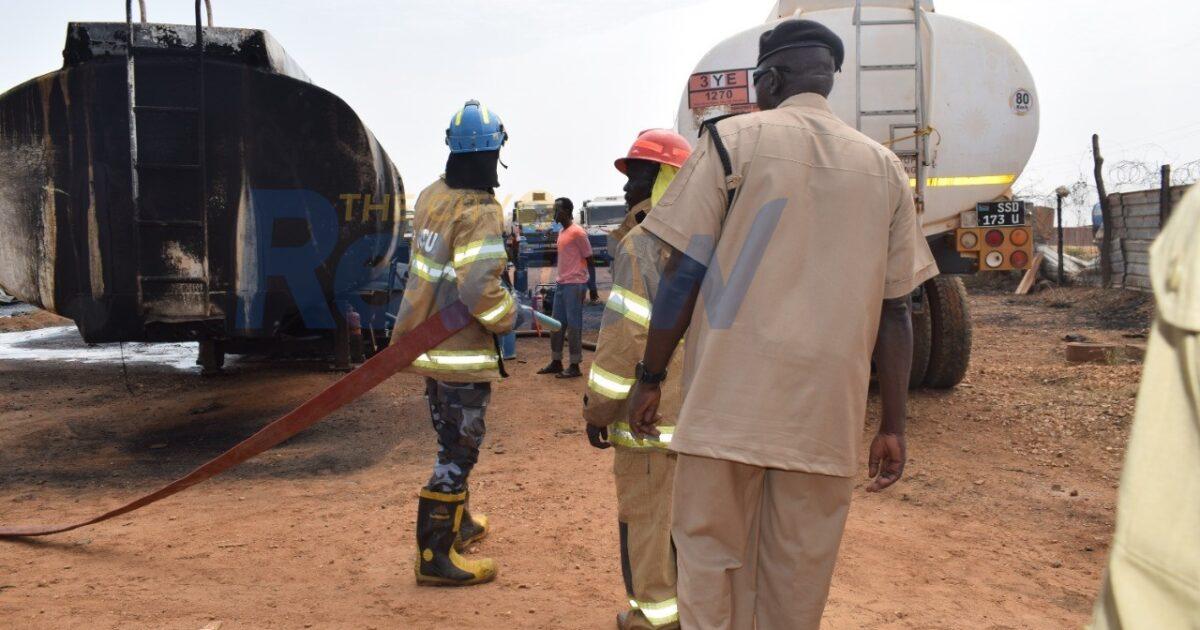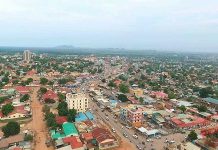Africa-Press – South-Sudan. The Chairperson of the Clearance Agencies at the Nimule Border, Daniel Deng, has called on the government to deploy emergency fire trucks at the Nimule border point.
Deng warned that should a fire break out at the border, the whole area could plunge into a disaster due to the lack of adequate emergency response.
The Nimule border point is a direct entry between Uganda and South Sudan, where immigration and customs services are provided.
Although the border point handles a wide range of imports and exports bound for both countries, clearing and forwarding officials are concerned about the absence of firefighting equipment in the event of an emergency.
“The whole of Nimule border doesn’t have the fire brigade, we don’t have a fire extinguishing system,” said Deng.
“We have about four parking yards; the main parking yard is taking between 500 and 600 pieces of cargo and the second parking yard is taking a minimum of 200 pieces of cargo. So, if anything happens, Elegu border does not have fire trucks,” he stressed.
Deng made the direct plea to the government, saying there is an urgent need to deploy at least an emergency fire brigade at the border point.
Bith Abraham, the spokesperson of the South Sudan National Civil Defence Service, said the institution has a capacity of forces in all the 10 states and the three administrative areas.
He said some states like Western Bahr el Ghazal, Eastern and Central Equatoria states and Aweil in the Northern Bahr el Ghazal have fire trucks.
He said in other states, those fire trucks are not functioning due to mechanical problems.
“In counties like Bentiu, the fire truck got burnt during the clashes.”
Abraham said regardless of Nimule being the border point and a direct entry point between Uganda and South Sudan, it has no single fire brigade station.
The South Sudan National Civil Defence Service has deployed civil defence officers such as the non-commission officers and private officers at Nimule to carry out risk assessments and raise awareness using the fire appliers (the small fire extinguishers) at Nimule.
Abraham highlighted the challenges facing the institution, saying some states like Central Equatoria State only have one fire truck.
He said there are needs for risk assessments and the fire brigade response on time, but cautioned that they are unable to carry out the work due to lack of equipment.
Infrastructure key
In addition to the fire trucks, Deng noted that activities at Nimule border point need to shift from analogue to digital.
He said the manual processes of clearing goods and people are not only cumbersome but also result in revenue losses.
“Our neighbouring countries have digitised their systems, so it would be good for our country to move from analogue to digital systems,” Deng said.
“This will speed up the work, and it will also boost the revenue collection because it will minimise loss of data and critical information.”
He hinted at a need to improve infrastructure, including scanners, laboratories for testing foodstuffs from neighbouring countries.
“We are supposed to test the standards so that we establish whether the foodstuffs being brought into the country are fit for human consumption,” Deng stated.
Deng emphasised that a well-functioning border point always goes along with increasing revenue collection and boosting the economy.
On its website, TradeMark East Africa, a non-profit organization that encourages cross-border trade in East Africa, says the Nimule-Elegu border post is strategically important to the East African Community region because it is the main entry into South Sudan from the port of Mombasa.
The organisation however noted that imports take an average of four days to process at the border, and traders bear significant expenditure as a result of the delay.
Inadequate border infrastructure, insufficient quality, and quantity of technical equipment, bad border architecture, difficult procedures dependent on centralized control, and many border organizations working in isolation are all factors that contribute to time delays.
For More News And Analysis About South-Sudan Follow Africa-Press






